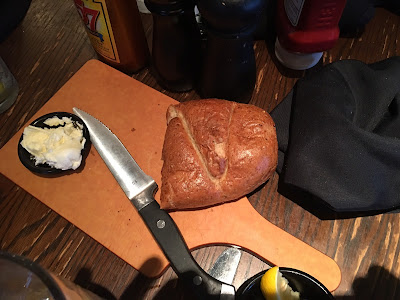Jeremy, a boy full of curiosity about the world, seems strange to some of his schoolmates. He has gone with his class to the library, and he’s hungry for the knowledge waiting for him between the covers of a book he checked out.
We lined up and started walking back to the classroom. I read as I stumbled along. The book riveted my imagination so much that I bumped into the girl in front of me.
“Stop it, you silly bookworm.” She turned around and slapped the book out of my hands.
“I’m sorry.” I was also mad, but I didn’t tell her.
“Serves you right to drop your stupid book.” She reached toward her spine. “That hurt.”
Math class followed library time. Back in my desk, I hid the library book—now open to an interesting picture—under my notebook. Glancing at it, I yearned to study what I wanted to learn about. Visions of soldiers mounted on horseback charging off to battle occupied my thoughts. Maybe Walthere’s ancestors rode along the ancient Silk Road. Men carried black tents. Women with babies tied to them held their small children’s hands. I wondered if it happened that way. It was so long ago. Who knew the truth?
“What did you get for problem number seven?” Mrs. Tetley must have called on me. “Jeremy, pay attention. Did you do your homework?”
“Yes, ma’am.”
My classmates snickered.
“How can you check it if you don’t pay attention? Tomorrow we’ll have to start exchanging papers because of this.”
Recess came. Breaking the rule against taking books onto the playground, I sneaked the library book under my shirt. I couldn’t wait to start reading. Hoping to avoid a discussion with the teacher, I slid out the door.
“Jeremy,” Mrs. Tetley, sitting at her desk and looking over her spectacles, called.
I turned back into the room. Maybe we could get this over with quickly. “Yes, ma’am.”
“How is your mother?” Teacher looked all dewy-eyed.
“She’s doing very well, ma’am.” I forced a smile so big it made my face feel tight.
“Really?” She raised an eyebrow. “I’m glad she’s better. I thought—”
“It’s almost like she was never sick.” I squirmed so she wouldn’t see my book. I didn’t want to waste a precious minute of recess. I valued my time, yet other people used my share of it.
One day when I’d become a man, I planned to find a way I could decide how I used my time. At school, the teachers took all of it. At home I had no spare time in the afternoon. At night I couldn’t sleep for the spooky things that went on in the yard.
“Son, you know if you need to be excused, it’s all right to ask.”
“I know.”
“Go on.” She stood and started writing assignments on the chalkboard.
“Thank you.” I stepped lively to the door.
By that time, I did have to go to the outhouse. Whew—another chunk of recess wasted.
Near the willow tree where Trudy and I planned to meet, I opened the book to look for a section I wanted to share with her. In the blinding sun, I squinted to read. My foot tripped on a rock.
The people who left India and became the Romani started emigrating before 1000 A D. I wondered whether some of them really did go with Abraham to Egypt. My Sunday School teacher taught us that Abraham lived about 2000 years before Christ. Could the beginning of the Romanies go back to such an early time?
By studying languages, historians determined the migration began before 400 A D. I found the book a little hard to read, but it seemed to say the people left in several little dribbles. It would be fun to tell Walthere something about his ancestors he didn’t know. Some of them left because of lost wars in the land, but these tortured persons didn’t need a war to send them away.
My reading was interrupted.
Meaty hands jerked the book from my fingers, ripped it along the spine into two pieces, each flying a different direction.
“You push my brother?”
With caution, I raised my eyes...I knew it. Those cotton-picking Felty boys showed up at school.
Why they ever came to school I didn’t know.
Junior Felty glared down at me. “I don’t take to no Gypsy lover pushing Little Joe.”
“I didn’t mean to.” I spoke in a low voice, with the hope not to start something.
“Watch where you’re going.” Junior pushed my shoulder. “I’ll show you how it feels to push somebody.”
“I’m sorry.” I lied.
My eyes caught Trudy running first to my left to pick up the piece of the book. A few seconds later, she dashed to the right and grabbed the other piece.
“And you can tell your Gypsy flunky he’s lucky my pa ain’t had him put in jail for shooting at under-aged boys.” Junior lunged at me.
Oh, so he called himself an under-aged boy. How could he brag about his pa sending anybody to jail when that was where Red Felty seemed to have taken up residence? In a few days he’d go to court for trying to kill my pa. I’d have bet anything old Red was going to Parchman.
For a time that seemed to have no end, I stood my ground, fists clinched but not moving. Then Trudy and Will, along with a row of boys who were my friends lined up beside me. One of the boys in the line called out, “Your ma’s a whore, and your pa’s a drunk jailbird.”
I felt sorry for the Felty brothers. I didn’t feel sorry enough to take up for them. No, sirree.
“Who wants to fight?” Will asked.













